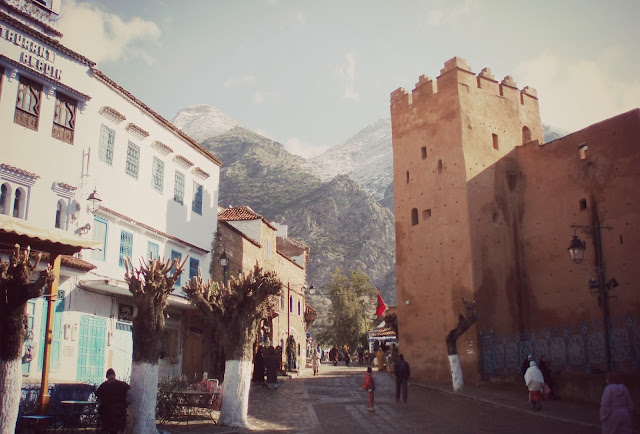I was close now. Waking up early on the third day there were
about twelve miles to walk (all the maps and signs were in miles, so I’d
converted my thinking). But the previous day I’d been limping along at only a mile
an hour, the discomfort in my foot just wouldn’t allow for more. I got going
before the sun rose to give myself time to get back to the car and medical
attention. In the shadow of the early
morning I wound down the escarpment, surprising a family of deer on the way.
I was determined to get back, but also worried about what
was to be done with this horrible cut on my foot, which was still oozing blood
and throbbing relentlessly.
Reaching the valley floor the path followed the shallow,
clear waters of the Tuolumne River as it snaked its way towards home. In the glowing
sunshine I hobbled along, stopping now and again to catch my breath. I gazed
around at the line of pine-covered mountains rising on either side of the river plain, the
snowy peaks back from where I’d come, and the bubbling river flowing gently
along, quietly doing what it was made to do.
Before long I began passing people with fishing rods, father
and son out for a day in the wild. It looked like paradise, and I
envied them for their lack of worry.
In mid-afternoon, physically and mentally exhausted, I
presented myself at the Ranger hut. I needed some help I told them and they
called a first aid officer in to look at me.
‘Sorry if I’m a bit smelly’, I said as I unwound the manky,
blood-soaked bandage from my foot, ‘it’s been a tough few days’.
‘That’s fine’, she said. Then, looking at the wound, ‘Yeah,
you’re going to need to get to hospital for this one. Or there’s a medical
centre in Yosemite village if that’s easier for you.’
I drove down to the busy Yosemite village and pulled up at
the medical centre. I was waiting behind a Belgian guy who’d smashed his knee
rock climbing, and when it was my turn I went in to see Andy the nurse. I took
the bandage off.
‘Eeeeeergheeew’, he said. ‘Why didn’t you come in sooner? Hey
Jen, come and look at this!’ he called.
In came Jen, another nurse. After looking with a delighted
grimace at the gaping, festering wound which now seemed to take up most of the
sole of my foot, she asked if I’d mind if she took a photo.
A doctor came in and poked around inside for a bit.
‘We don’t normally put in sutures after two days, but I
don’t see any other options’, he said. ‘There’s a high chance of infection so
you need to get straight back here if it gets sore and red’.
Up until now the pain had never been too terrible. But after
flushing out the wound, it was time for the anaesthetic. I hate needles at the best of
times, I really do. And I discovered that a needle in the foot is like no pain
I’d ever come across. Six times they jabbed me with that little stick of fire
and six times I writhed on the bed as though undergoing an exorcism.
Drained, lonely and sorry for myself,
I hopped out of the medical centre to face the next question... how does a man
on crutches go about setting up a tent?
 |
| Looking back at the mountains I'd been exploring, the path home was flat and sunny. |
 |
| In dappled sunshine I limped along beside the quiet river. |
 |
| Paradise, but I was determined just to get back. |















































